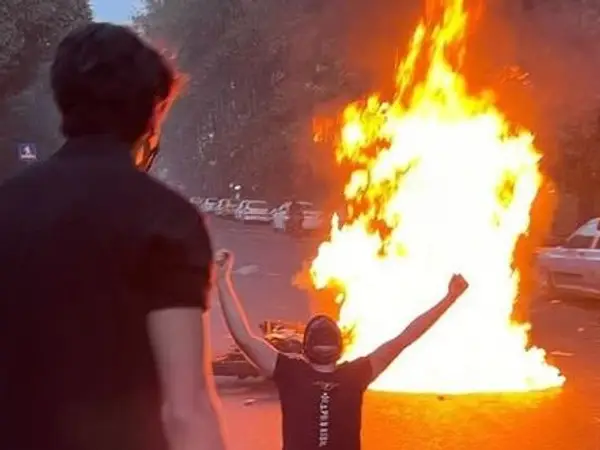While assessments by Iran’s intelligence and security organs show serious dissatisfaction among young people, they still call for a harsh response to protests.
Revolutionary Guard (IRGC) mouthpiece Javan newspaper acknowledged in an October 1 report that "based on demographic intelligence about the protests, over 93 percent of those taking part are young men and women below the age of 25." The IRGC called them "a younger generation of rebels."
Meanwhile, this assessment has revealed that despite gender segregation rules that strictly separate young men and women, some 90 percent of protesters join the rallies as "couples".
Earlier, the IRGC-linked Fars news agency had also reported that protesters are "young adults who are not committed to religious values."
On October 2, IRGC Commander Hossein Salami also admitted that a new generation of protesters has taken to the streets of Tehran and other Iranian cities during the past two weeks. Meanwhile, he acknowledged that young Iranians "are not interested in the IRGC" and what it does. Nonetheless, he said: "We defend everyone even those who do not like us." However, the Guards were not seen defending anyone during the past weeks and also in previous rounds of protests. Instead, Iranians have seen them using violence against protesters.
During the past two days, Salami has threatened "to take revenge" from the people in Baluchistan province where tens of locals were killed by the IRGC on September 30 and its intelligence chief in the province was allegedly killed by protestors on the same day. The hard-line Parliament (Majles) has also called on the IRGC to take revenge for the protests.
Meanwhile, an Intelligence Ministry report repeated typical rhetoric that the British and Saudis as well as other countries are involved in the protests behind the scenes. The report said that intelligence officers accompanied the police and Basij militia in the suppression of the protests and gathered intelligence about the organizers and supporters of the protest movement.
The Intelligence Ministry claimed that it has arrested 92 monarchists, 49 members of the Mojahedin-e Khalq (MeK) organization as well as 77 members of militant Kudish parties on both sides of the Iran-Iraq border.
The Ministry also claimed that it has arrested five members of an un-named Takfiri group who were in possession of 36 kilograms of explosives. The group, the ministry claimed had plans to assassinate a state official and bomb religious centers in Mashhad and Shiraz.
In an interesting but otherwise unproven claim, the Ministry of Intelligence said it has arrested 9 German, Polish, Italian, French, Dutch and Swedish citizens in or behind the scenes of the protests. The ministry said that it has issued warnings to a number of foreign countries' embassies in Tehran. However, there are no independent confirmation of the alleged arrests and warnings.
Responding to these claims, Paris based Muslim scholar Mohammad Javad Akbarin wrote in a In an October 2 tweet: "The Iranian government has blamed "Citizens of Germany, Poland, Italy, France, Holland, Sweden, as well as Bahais, the Mojahedin-e Khalq (MeK), the Pahlavi dynasty and others" as those who have conspired to bring about protests in Iran. Yes! It is only this ugly government that is good!"
Meanwhile, reformist commentator Abbas Abdi also responded to the ministry's claim, saying that, "Iranian hard-liner neo-conservatives reactions to the protests that followed the death of Mahsa Amini reveals nothing but their ignorance, sorry state and weakness.” Abdi further charged that the current protest and those in 2018 and 2019 are the outcome of provocations made by hard-liners.
Abdi noted that they never assume any responsibility for what they have done and do not want to be accountable for their own behavior, which is the underlying cause of dissent and protest, and instead, they blame others for their own actions.
